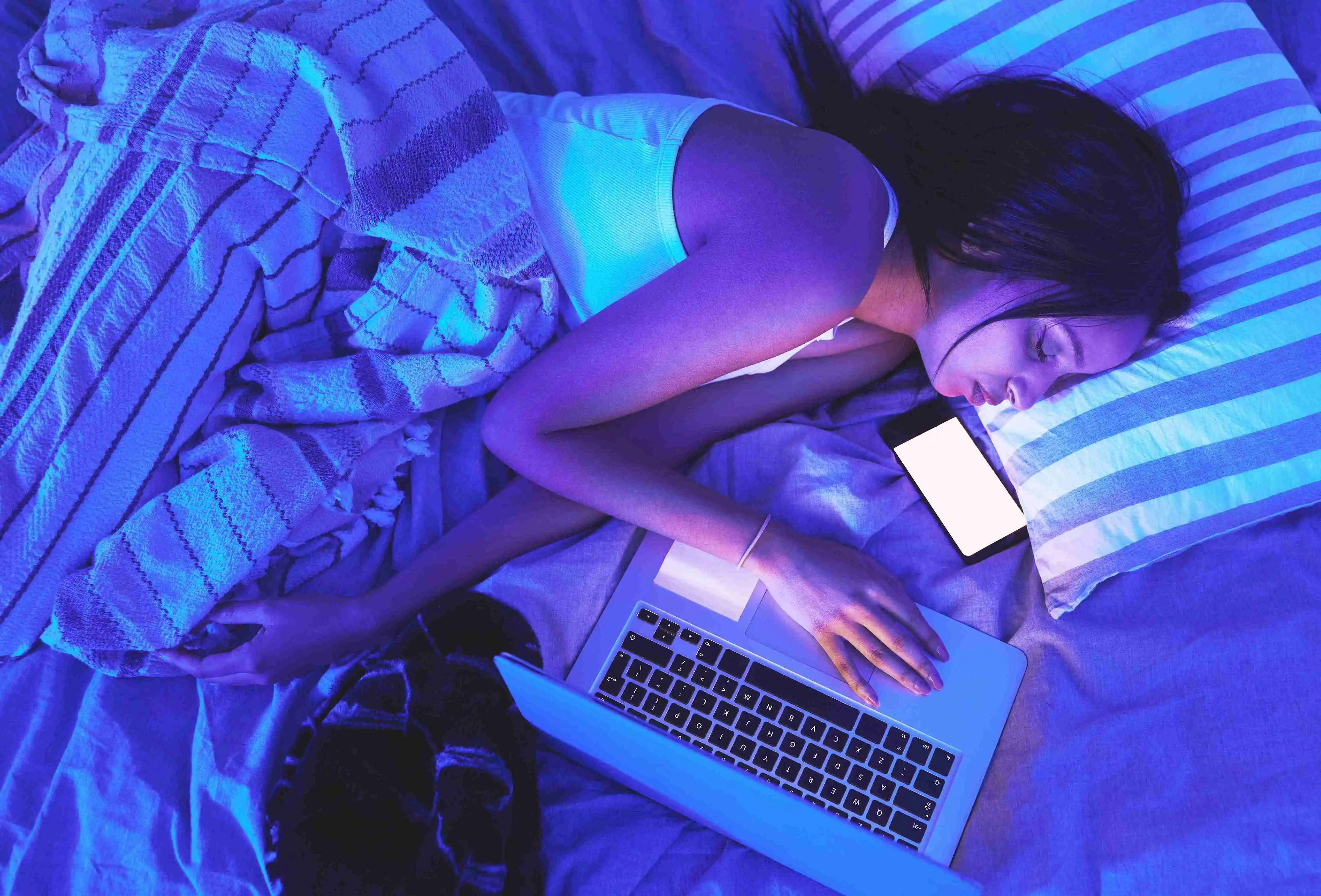In today's digital era, electronic devices have become an integral part of our daily lives. From smartphones and tablets to laptops and televisions, these gadgets have revolutionized the way we communicate, work, and entertain ourselves. However, as convenient as they are, these devices can significantly impact our sleep patterns.
In this article, you'll better understand how electronics affect sleep and discover practical strategies to mitigate their influence.
Understanding the Science Behind Blue Light and Sleep
Sleep is a fundamental biological process that plays a crucial role in our overall health and well-being. During sleep, our bodies undergo various restorative processes, including tissue repair, memory consolidation, and hormone regulation. Disruptions to this natural cycle can have far-reaching consequences, affecting our cognitive function, mood, and physical health.
When it comes to electronics and sleep, the primary culprit is the blue light at night emitted by digital screens. This light mimics the wavelengths of natural daylight and can trick our bodies into thinking it's daytime, suppressing the production of melatonin – the hormone responsible for regulating our sleep-wake cycles.
The Impact of Blue Light Before Bed on Sleep Patterns
Blue light exposure in the evening hours can significantly disrupt our circadian rhythms, the internal clocks that govern our sleep-wake cycles. This disruption can lead to delayed sleep onset, shorter sleep duration, and reduced sleep quality.
Furthermore, the stimulating nature of electronic devices can also contribute to sleep disturbances. The constant influx of information, notifications, and engaging content can keep our minds active and alert, making it challenging to wind down and relax before bedtime.
The Connection Between Screen Time and Insomnia
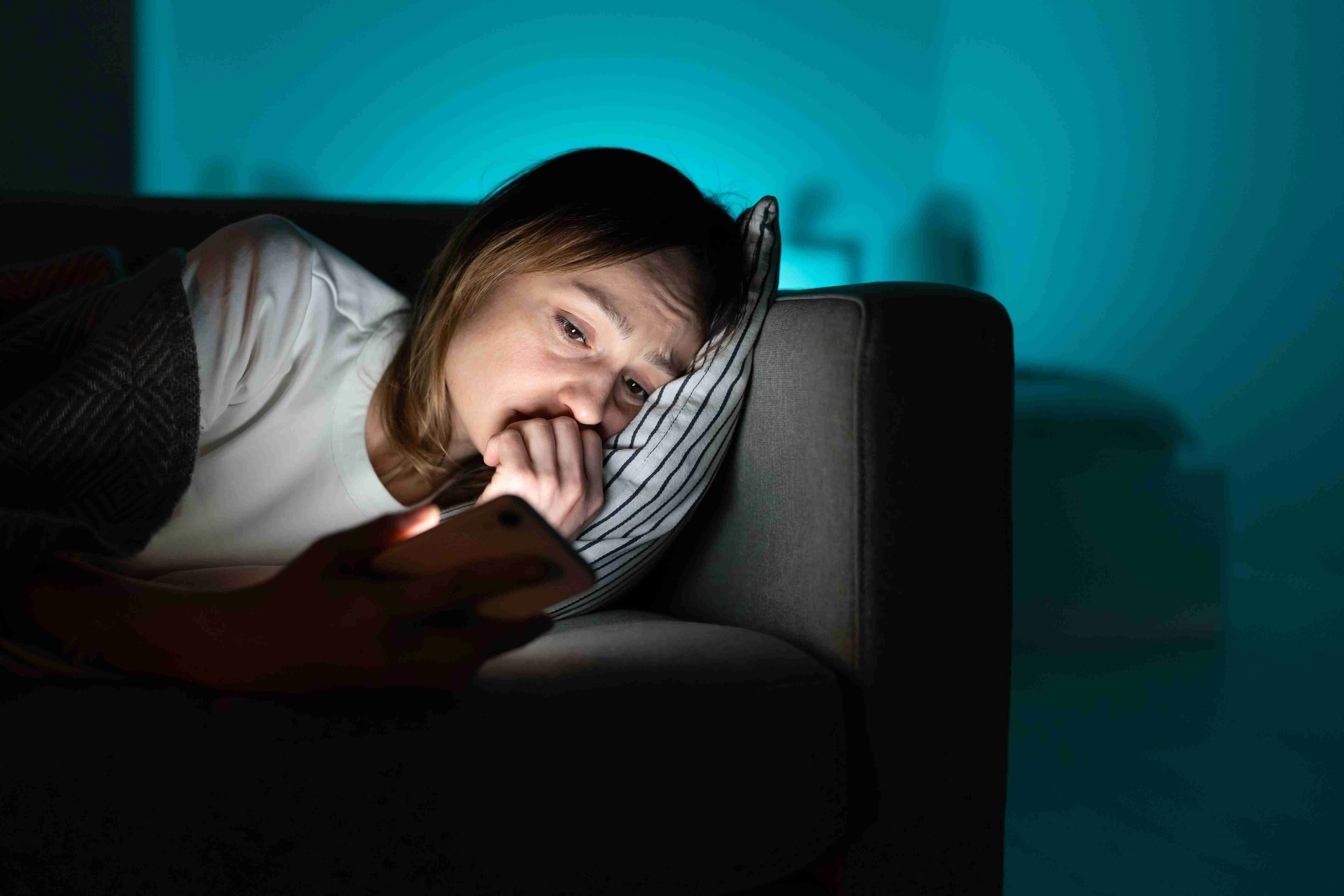
Insomnia, a sleep disorder characterized by difficulty falling asleep, staying asleep, or experiencing non-restorative sleep, has been associated with excessive screen time. Individuals who spend more time on electronic devices before bedtime are more likely to experience symptoms of insomnia.
This connection is exacerbated by the addictive nature of some electronic devices and the constant stream of notifications and updates, which can create a sense of FOMO (fear of missing out) and further disrupt sleep patterns.
Effects of Electronics on Sleep Quality and Health
Electronics, especially devices like smartphones, tablets, laptops, and TVs, can significantly affect sleep quality and overall health. One of the main ways electronics impact sleep is through the emission of blue light.
Exposure To Blue Light and Sleep
Blue light suppresses the production of melatonin, the hormone that regulates sleep. When melatonin levels are reduced, it becomes harder to fall asleep, and sleep quality is compromised.
Mental Stimulation
Another issue is mental stimulation caused by the use of electronics. Engaging with devices, whether through gaming, social media, or watching TV, can keep the brain active and alert, making it difficult to wind down before bed. This mental stimulation delays sleep onset and reduces the quality of sleep.
Sleep Disruptions
Electronics can also cause sleep disruptions even after you fall asleep. Notifications, sounds, or vibrations from incoming calls and messages can wake you up in the middle of the night.
These interruptions lead to fragmented sleep, which prevents the body from reaching deep, restorative sleep stages.
As a result, sleep quality suffers, and this fragmented rest can affect your overall health, impairing mood, performance, and even physical health.
Increased Screen Time and Sedentary Behavior
Excessive screen time, particularly at night, is linked to sedentary behavior. Spending long hours on electronic devices, especially before bed, leads to a lack of physical activity, which is essential for good sleep.
Sleep Environment
The sleep environment itself can also be affected by electronics. Bright screens from devices like TVs, smartphones, and laptops can interfere with the natural darkness needed to trigger the body’s sleep cycle.
How Different Electronics Affect Sleep Quality
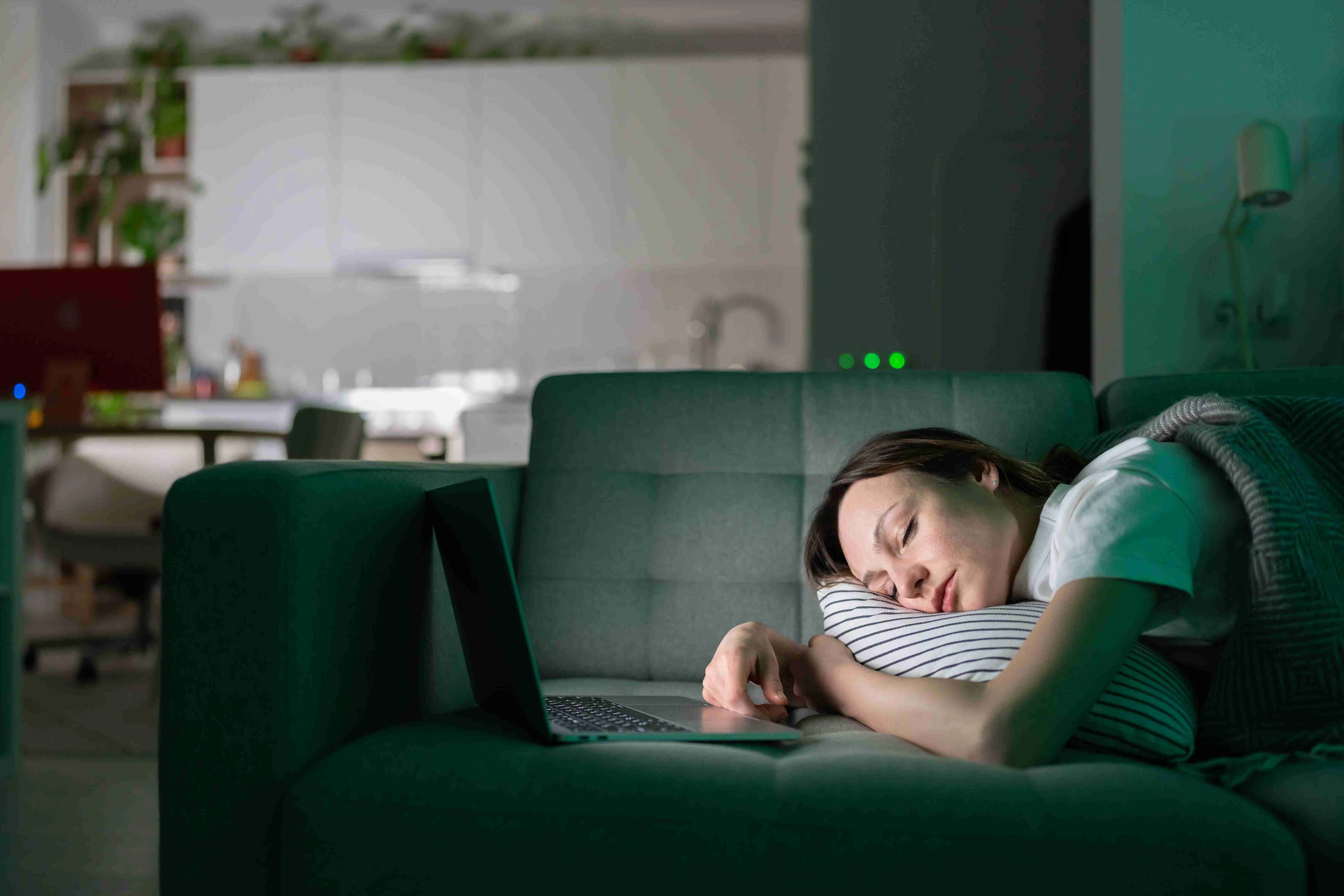
While all electronic devices emit blue light and can contribute to sleep disturbances, the impact may vary depending on the type of device and its proximity to your face.
- Smartphones and Tablets: These handheld devices are often used near the eyes, increasing the intensity of blue light exposure and potentially causing greater disruption to melatonin production and sleep patterns.
- Laptops and Computers: Although laptops and desktop computers may be used at a greater distance from the face, prolonged use, especially in the evening hours, can still contribute to sleep issues.
- Televisions: While televisions may seem less disruptive due to their distance from the viewer, the bright and flickering screens can still impact sleep quality, especially if viewed in a dark room or close to bedtime.
- Video Game Consoles: Gaming before bedtime can be particularly problematic, as the interactive and stimulating nature of video games can increase physiological arousal, making it harder to transition into a restful state.
How much screen time is too much before bed?
The ideal screen-free period before bed varies depending on the individual, but at least 30 minutes to an hour of screen-free time before sleep is beneficial.
Recommended Screen-Free Time Before Bed
It is recommended that you stop using electronic devices at least 30 to 60 minutes before bed.
This time allows your body to wind down and prepare for sleep without the interference of blue light or mental stimulation. Establishing a screen-free routine in the hour leading up to sleep can help improve your sleep onset and quality.
Signs of Screen-Related Sleep Disruption
If you find yourself having trouble falling asleep, staying asleep, or waking up feeling unrefreshed, it could be a sign that your screen time is affecting your sleep.
Other common signs include feeling groggy or tired during the day, difficulty concentrating, or mood changes.
Strategies to Reduce the Impact of Electronics on Sleep
To mitigate the negative effects of electronics on sleep, consider implementing the following strategies:
Establish a Screen-Free Period
One of the most effective strategies is to create a screen-free period in the hour before bed. This gives your brain a chance to unwind and signals to your body that it’s time to prepare for rest. Avoiding screen time during this period helps regulate your circadian rhythm and promotes better sleep.
Use Blue Light Filters
Many modern devices come with blue light filters or “night mode” settings. These filters reduce the amount of blue light emitted by screens, minimizing the impact on melatonin production. Activating these features in the evening can help reduce the sleep-disrupting effects of screen exposure.
Adjust Brightness and Contrast
If you must use screens before bed, adjusting the brightness and contrast of your devices can help.
Lowering the brightness reduces the intensity of light exposure while increasing contrast can make it easier to read or view content without straining your eyes. Dimming your screen settings helps to lessen the impact of screen light on your sleep.
Create a Sleep-Friendly Environment
Turning off electronics in the bedroom, including phones, computers, and TVs, can create a more restful and sleep-friendly environment.
Dim the lights, and ensure the room is hygienic and comfortable. Keeping your bedroom free from devices associated with mental stimulation helps signal to your body that it’s time to sleep.
Practice Relaxation Techniques
Engaging in relaxation practices such as deep breathing, meditation, or progressive muscle relaxation can help you unwind and prepare your body for sleep.
These techniques can be particularly useful in place of screen time, helping to calm your mind and reduce stress.
Limit Stimulating Content
If you must use electronics before bed, avoid stimulating or stressful content. Watching intense shows, playing fast-paced video games, or engaging in emotionally charged discussions on social media can keep your mind overly active, making it harder to fall asleep.
Alternatives to Electronic Devices Before Bedtime
Instead of relying on electronic devices for entertainment or relaxation before bedtime, consider exploring alternative activities that promote sleep:
Reading a Physical Book
Reading a physical book, especially something light and non-stimulating, can be a great way to unwind. Books help to relax the mind without the interference of blue light or screen-induced mental stimulation, making them an excellent alternative to electronic devices before bed.
Journaling
Writing in a journal before bed can help you process your thoughts, alleviate stress, and prepare for restful sleep. Reflecting on your day or writing about your feelings can be a calming, screen-free activity that promotes relaxation.
Light Stretching or Yoga
Gentle exercises or a short yoga session can help relax your muscles and calm your mind. Incorporating light physical activity before bed encourages the body to release tension and can lead to deeper, more restful sleep.
Listening to Relaxing Music or Podcasts
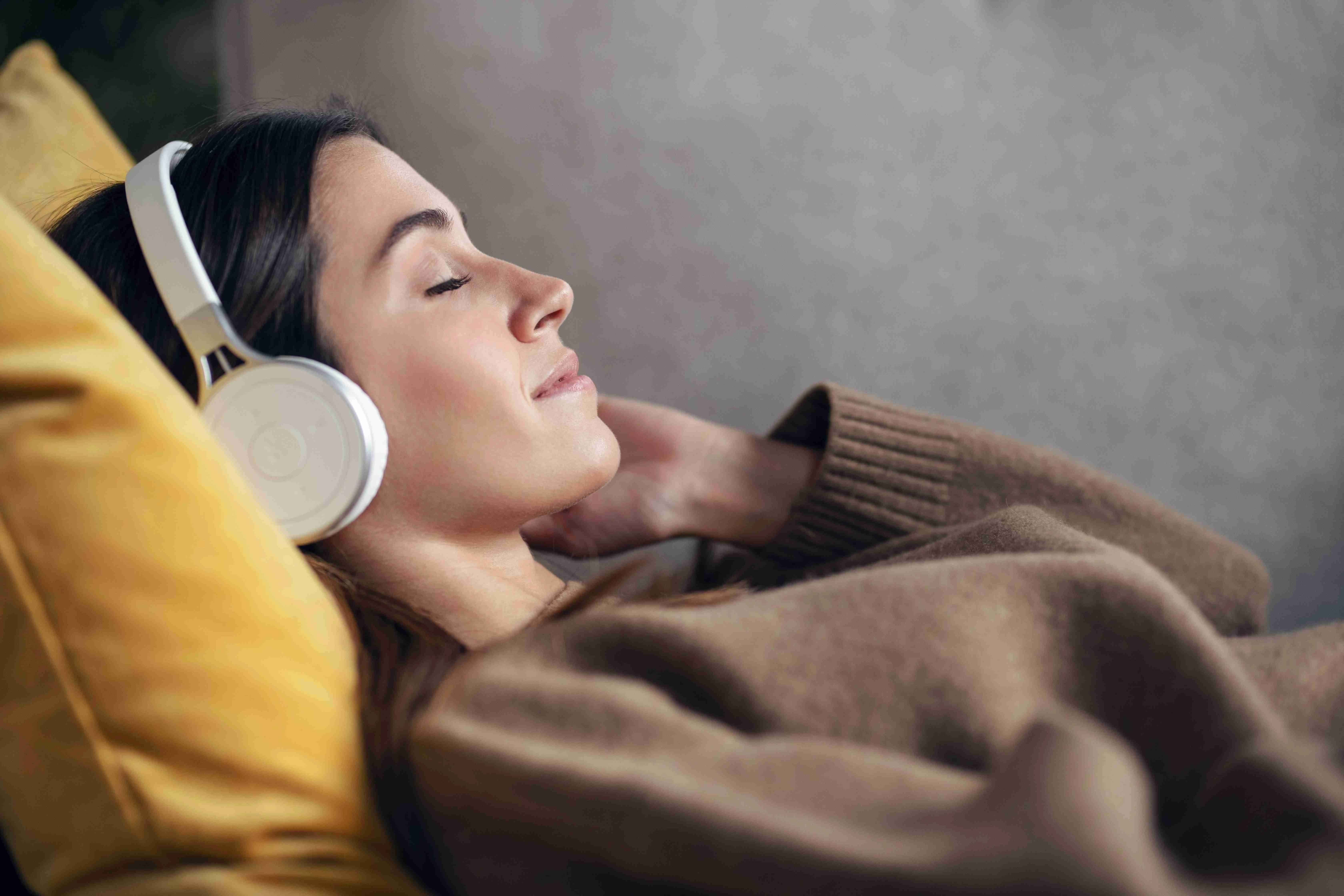
Listening to calming music or an audiobook can help ease your mind and promote relaxation. Opt for content that’s soothing and not overly stimulating. This alternative offers a great way to wind down without the need for electronic screens.
Taking a Warm Bath
A warm bath or shower before bed can help relax your body and prepare it for sleep. The increase in body temperature followed by a cooling down process promotes sleepiness, helping you feel more relaxed and ready for bed.
Creating a Screen-Free Bedtime Routine
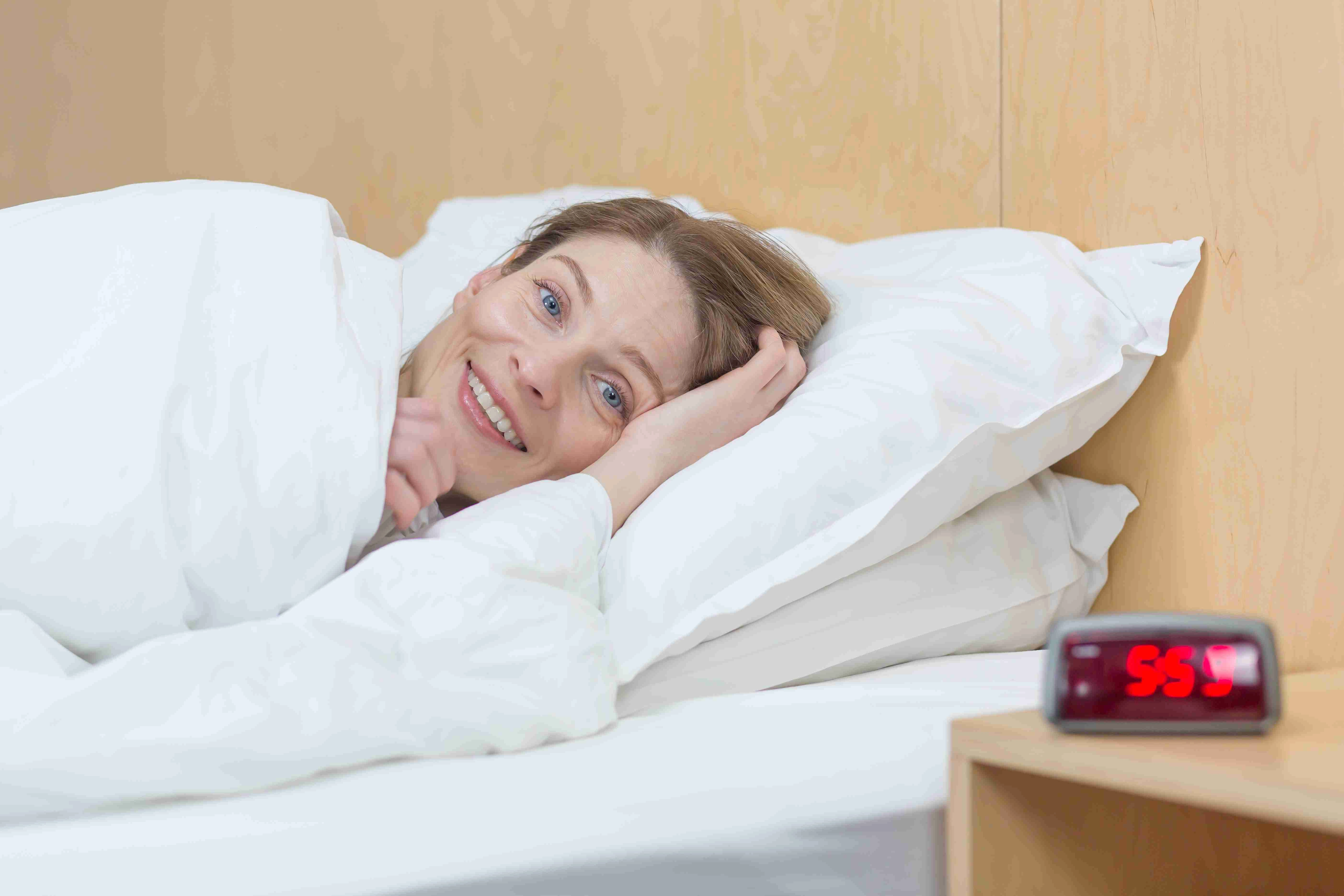
Establishing a consistent and screen-free bedtime routine can be highly beneficial for promoting better sleep. Here's an example of what your routine might look like:
- One Hour Before Bedtime: Turn off all electronic devices and engage in a relaxing activity, such as reading a book, journaling, or practicing light stretching.
- 30 Minutes Before Bedtime: Prepare for bed by dimming the lights, taking a warm bath, or practicing deep breathing exercises.
- Bedtime: Ensure your bedroom is cool, dark, and quiet, and aim to go to bed and wake up at consistent times each day.
FAQs
Can using blue light filters on devices eliminate the impact on sleep?
While blue light filters can help reduce the intensity of blue light exposure, they may not completely eliminate the impact on sleep. Other factors, such as the stimulating nature of electronic devices and the content consumed, can still contribute to sleep disruptions.
Is it okay to use electronic devices for a short period before bedtime?
While it's best to avoid electronic devices altogether in the hours leading up to bedtime, brief usage may have a lesser impact on sleep. However, it's important to be mindful of the content consumed and the proximity to bedtime.
Can children be affected by the blue light from electronic devices in the same way as adults?
Yes, children and adolescents can be just as susceptible, if not more so, to the effects of blue light on sleep patterns. It's essential to monitor and limit their screen time, especially before bedtime, to promote healthy sleep habits.
Are there any apps or software that can help reduce the impact of electronics on sleep?
Yes, there are various apps and software available that can help manage blue light exposure and screen time. Some popular options include f.lux, Twilight, and Night Shift (built-in on iOS devices), which adjust the color temperature of your screen based on the time of day.
Can using electronic devices during the day also affect sleep quality?
While the impact may be less severe, excessive use of electronic devices during the day can still contribute to sleep disturbances. It's important to practice moderation and take regular breaks from screen time to allow your eyes and mind to rest.
Conclusion
Prioritizing quality sleep is crucial for overall health and well-being. By making conscious choices about your screen time, creating a sleep-friendly environment, and exploring alternative activities before bedtime, you can strike a balance between embracing technology and nurturing your body's natural sleep cycles.
Dom Abraham
As the lead content writer at Sleepiverse. Dom pours his heart into writing mattress reviews, bedding product reviews, and medically-reviewed health articles. Dom is from Portugal and likes to spend his free time writing on the beach as it gives him a sense of comfort. Aside from writing mattress reviews in front of the soothing beach view, Dom likes to experiment with new amazing food ideas.


